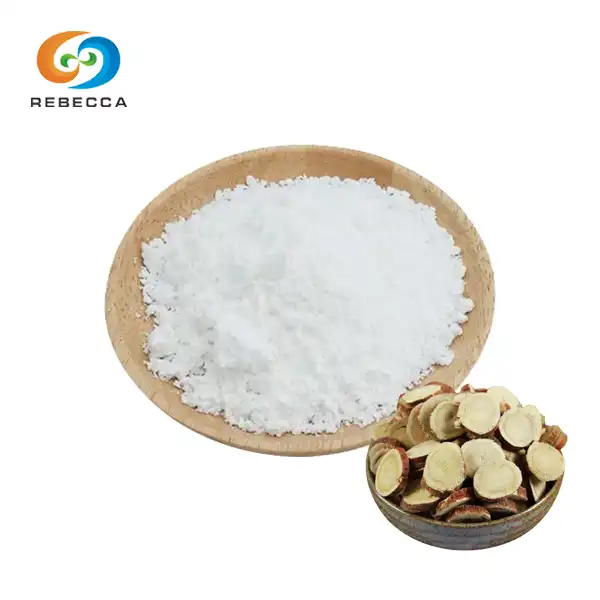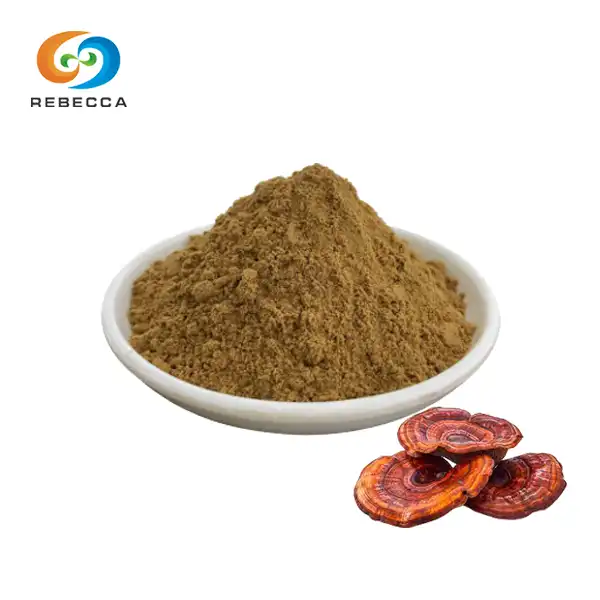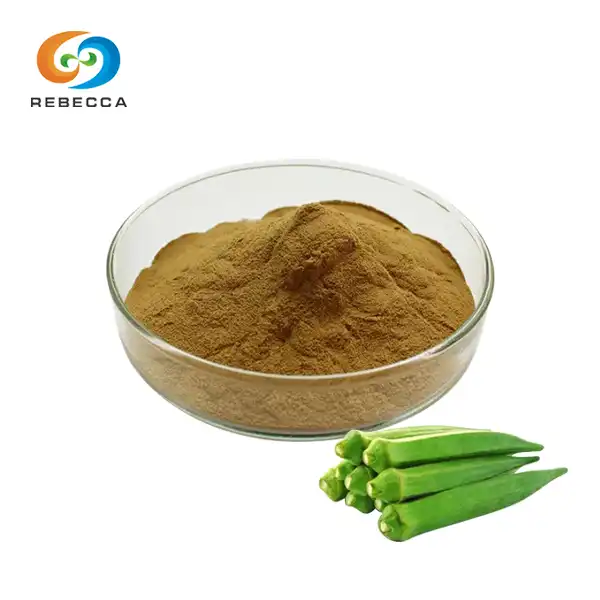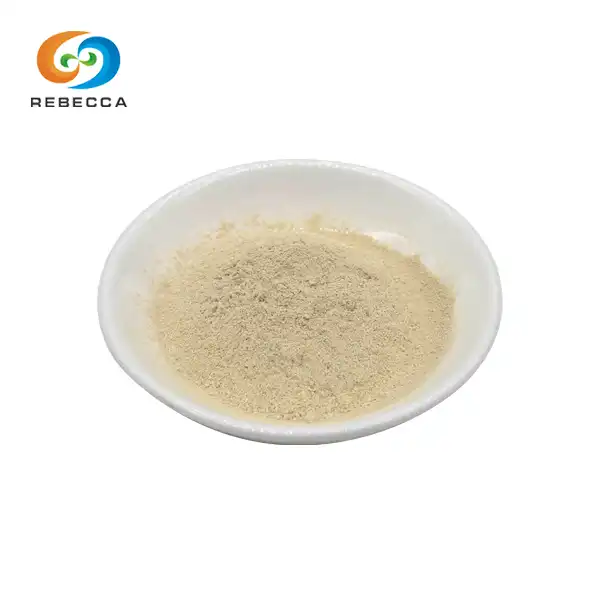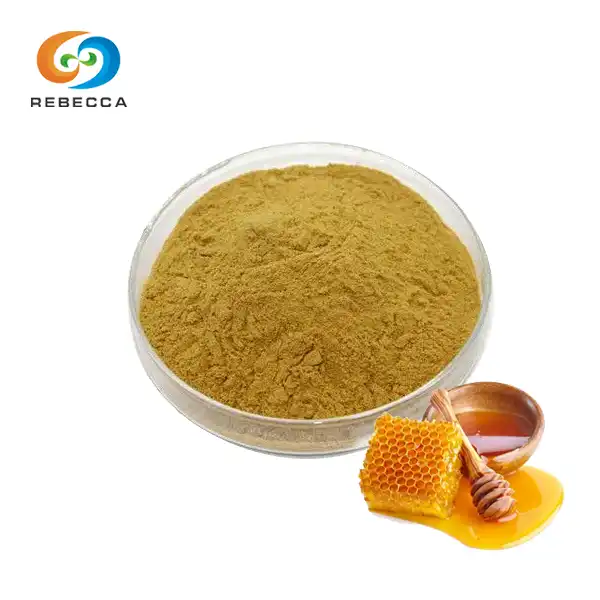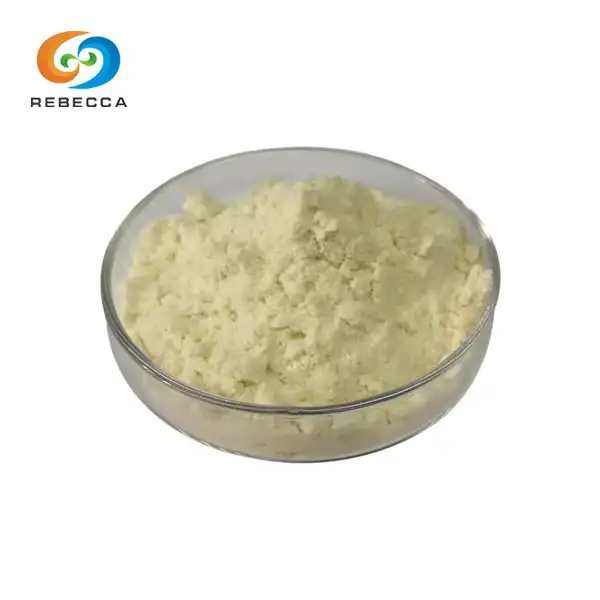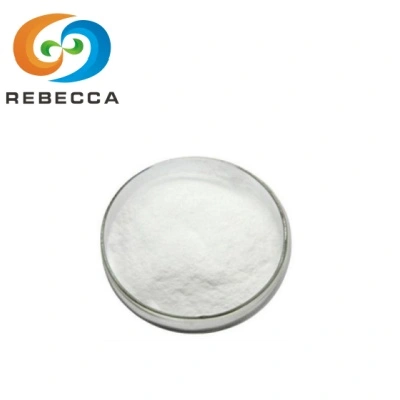Is L-Ergothioneine safe?
As interest in health supplements continues to grow, many individuals are turning to natural compounds for potential benefits. One such compound, L-Ergothioneine, has gained attention for its antioxidant properties and possible protective effects on cellular health. However, with the rise of any supplement comes questions regarding its safety and efficacy. In this blog, we will explore the current research on L Ergothioneine, its safety profile, and what you need to know before incorporating it into your wellness routine.
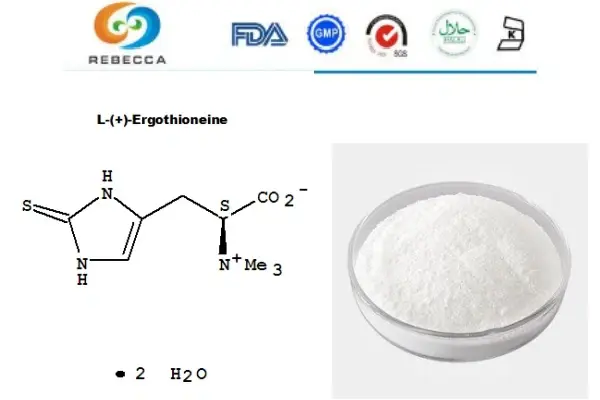
Natural Occurrence
The scientific community has been paying attention to the naturally occurring amino acid L ergothioneine for its potential health benefits. This chemical can be found in a variety of foods, but mushrooms have a lot of it. Other food items that contain L Ergothioneine include certain beans and grains, although in lower concentrations compared to mushrooms. The presence of L Ergothioneine in our diet is not a new phenomenon. Humans have been consuming this compound through their regular diet for centuries if not millennia.
This long history of consumption suggests that L Ergothioneine is generally safe for human intake. The body even has a particular carrier protein, OCTN1, committed to engrossing and dispersing L Ergothioneine all through different tissues, further showing its significance in human physiology. Mushrooms, especially varieties like oyster, shiitake, and king bolete, are known to have high concentrations of L Ergothioneine. For instance, oyster mushrooms can contain up to 40 mg of L Ergothioneine per 100 grams of dry weight. L Ergothioneine's safety profile is solidly supported by this natural occurrence in foods that have been a part of human diets for generations.
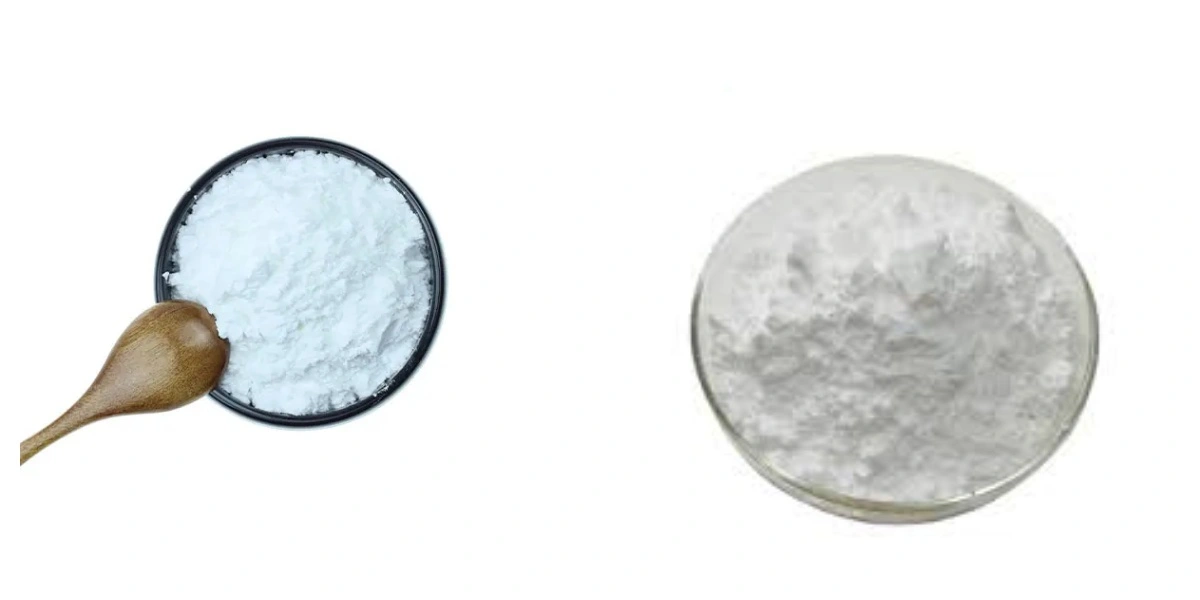
No Known Toxicity
One of the key factors in assessing the safety of any compound is its toxicity profile. In the case of L Ergothioneine, extensive research has shown that it has a remarkably low toxicity profile. This means that even at higher doses, L-Ergothioneine is unlikely to cause harmful effects in the body. Several studies have been conducted to evaluate the safety of L Ergothioneine.
A comprehensive review published in the journal "Preventive Nutrition and Food Science" in 2017 examined the available data on L Ergothioneine's safety. The review concluded that L Ergothioneine has no known toxicity in humans, even at doses much higher than what would be typically consumed through diet or supplementation.
In animal studies, researchers have administered L Ergothioneine at doses far exceeding what humans would normally consume, and no significant adverse effects were observed. For example, a study published in the journal "Food and Chemical Toxicology" in 2010 found that rats given daily doses of L Ergothioneine up to 800 mg/kg body weight for 90 days showed no signs of toxicity. It's important to note that while these studies provide strong evidence for the safety of L Ergothioneine, research is ongoing, and our understanding of its long-term effects continues to evolve. However, the current body of evidence suggests that L Ergothioneine has a very favorable safety profile.

Well-Tolerated
The majority of people generally tolerate L Ergothioneine well due to its low toxicity profile. As a result, people who take L Ergothioneine as a supplement or as part of their diet typically do not experience any adverse effects. L Ergothioneine's well-tolerated profile has consistently been demonstrated in human clinical trials. For instance, a 2020 study in the "Journal of Dietary Supplements" investigated the effects of taking L-ergothioneine in adults who were in good health. The members took 5 mg of L Ergothioneine everyday for quite some time, and no antagonistic impacts were accounted for during the review time frame.
Another review, distributed in "Preventive Medication Reports" in 2016, explored the impacts of L Ergothioneine supplementation on mental capability in old people. Members took 15 mg of L Ergothioneine day to day for quite some time, and once more, no huge aftereffects were noticed. While these examinations show promising outcomes with respect to the decency of L Ergothioneine, it's important that singular reactions can differ. Conceivable certain individuals are more delicate to changes in diet or enhancements.
Nonetheless, detailed unfriendly responses to L Ergothioneine are intriguing, and when they do happen, they are normally gentle and transient. The great decency of L Ergothioneine is possible because of its regular presence in the human body and our transformative variation to process this compound. L Ergothioneine's safety and tolerability may be influenced by the mechanisms our bodies have developed to regulate its levels.
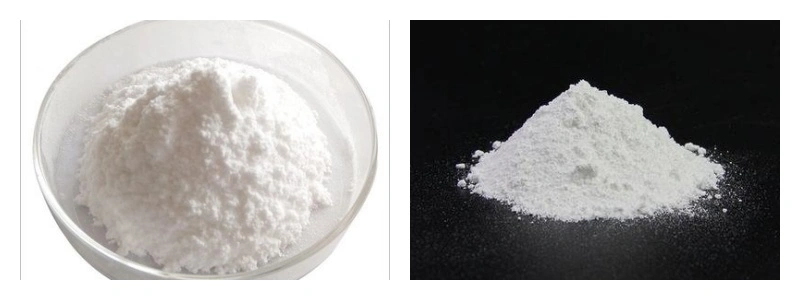
Specific Populations
While L-Ergothioneine is generally considered safe for most people, it's important to recognize that certain populations may need to exercise caution when considering L Ergothioneine supplementation. As with any dietary supplement, it's always advisable to consult with a healthcare professional before starting a new regimen, especially for individuals with specific health conditions or those taking certain medications.
Pregnant and breastfeeding women, for instance, should be particularly cautious. While there's no evidence suggesting that L Ergothioneine is harmful during pregnancy or lactation, there's also a lack of specific studies on its safety in these populations. Therefore, pregnant and breastfeeding women should consult their healthcare provider before taking L Ergothioneine supplements. Individuals with autoimmune disorders may also need to exercise caution. L Ergothioneine has been shown to have immunomodulatory effects, meaning it can influence the immune system. While this property might be beneficial in some cases, it could potentially interact with the complex immune dynamics of autoimmune conditions. People with conditions such as lupus, rheumatoid arthritis, or multiple sclerosis should discuss L Ergothioneine supplementation with their doctor. Those taking immunosuppressant medications should also be cautious. Given L Ergothioneine's potential effects on the immune system, it could theoretically interact with drugs designed to suppress immune function. This includes medications used after organ transplants or for treating certain autoimmune conditions. Individuals with a history of mushroom allergies should also be wary. While L Ergothioneine itself is not known to cause allergic reactions, many supplements are derived from mushroom sources. If you have a known mushroom allergy, it's crucial to check the source of the L Ergothioneine supplement and consult with an allergist before use.
It's also worth noting that L Ergothioneine may interact with certain medications or supplements. For example, since L Ergothioneine has antioxidant properties, it could potentially interact with other antioxidant supplements or medications. While such interactions are not well-documented, it's always better to err on the side of caution and discuss potential interactions with a healthcare provider. Lastly, individuals with liver or kidney disease should consult their doctor before taking L Ergothioneine supplements. These organs play crucial roles in metabolizing and excreting various compounds, including dietary supplements. While L Ergothioneine is not known to be harmful to these organs, people with compromised liver or kidney function may process supplements differently. It's important to emphasize that these precautions don't necessarily mean L-Ergothioneine is unsafe for these populations. Rather, they highlight the need for personalized medical advice when considering any new supplement, especially for individuals with specific health concerns or those taking medications.

L Ergothioneine Supplier
When considering L Ergothioneine supplementation or its use in product formulations, the quality and reliability of the supplier are paramount. One such supplier that has gained recognition in the industry is Rebecca. Their L Ergothioneine product is characterized by its high quality and purity, addressing several key concerns in supplement production.
Rebecca's L Ergothioneine is described as an odorless white crystal. This physical characteristic is important as it indicates the purity of the compound. The absence of odor suggests that the product is free from impurities that might affect its quality or safety profile. Another significant feature of Rebecca's L Ergothioneine is that it's non-hygroscopic. This property is crucial for maintaining the stability and efficacy of the compound during storage and use. Non-hygroscopic substances do not readily absorb moisture from the air, which helps prevent degradation and ensures a longer shelf life. Perhaps most importantly, Rebecca's L Ergothioneine is reported to be free of "toxic solvents" and "D-ergothioneine" residues. This is a critical factor in ensuring the safety and purity of the product. Toxic solvents, if present, could potentially introduce harmful substances into the final product. The absence of D-ergothioneine residues is also significant, as D-ergothioneine is the mirror image (or enantiomer) of L Ergothioneine and may not have the same biological effects. The emphasis on these quality aspects demonstrates Rebecca's commitment to producing a high-grade L Ergothioneine product that meets stringent safety and purity standards. This level of quality control is essential, particularly given the growing interest in L Ergothioneine as a dietary supplement and potential functional ingredient in various health and wellness products.
For those interested in learning more about Rebecca's L Ergothioneine product or for potential business inquiries, the company provides a direct line of communication. Interested parties can reach out for further information by contacting information@sxrebecca.com. This open channel for information demonstrates the company's transparency and willingness to engage with potential clients or researchers interested in their product. It's important to note that while Rebecca appears to be a reputable supplier, as with any supplement or ingredient, it's crucial for manufacturers and consumers to conduct their due diligence. This includes verifying claims, requesting certificates of analysis, and ensuring that any product meets relevant regulatory standards in their jurisdiction.
References
1. Cheah, I. K., & Halliwell, B. (2012). Ergothioneine; antioxidant potential, physiological function and role in disease. Biochimica et Biophysica Acta (BBA)-Molecular Basis of Disease, 1822(5), 784-793.
2. Pahila, J., Ishikawa, Y., & Ohshima, T. (2017). Effects of Ergothioneine-Rich Mushroom Extract on the Oxidative Stability of Astaxanthin in Liposomes. Journal of Agricultural and Food Chemistry, 65(2), 318-324.
3. Cheah, I. K., Tang, R. M., Yew, T. S., Lim, K. H., & Halliwell, B. (2017). Administration of Pure Ergothioneine to Healthy Human Subjects: Uptake, Metabolism, and Effects on Biomarkers of Oxidative Damage and Inflammation. Antioxidants & Redox Signaling, 26(5), 193-206.
4. Gruber, J., Fong, S., Chen, C. B., Yoong, S., Pastorin, G., Schaffer, S., ... & Halliwell, B. (2013). Mitochondria-targeted antioxidants and metabolic modulators as pharmacological interventions to slow ageing. Biotechnology Advances, 31(5), 563-592.
5. Halliwell, B., Cheah, I. K., & Tang, R. M. (2018). Ergothioneine - a diet-derived antioxidant with therapeutic potential. FEBS Letters, 592(20), 3357-3366.
